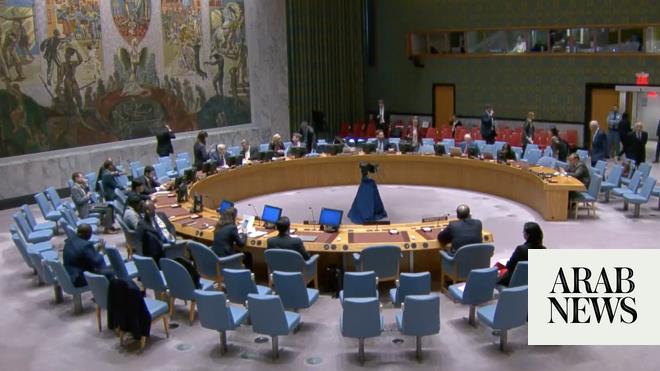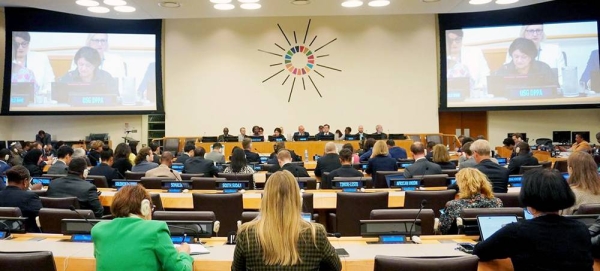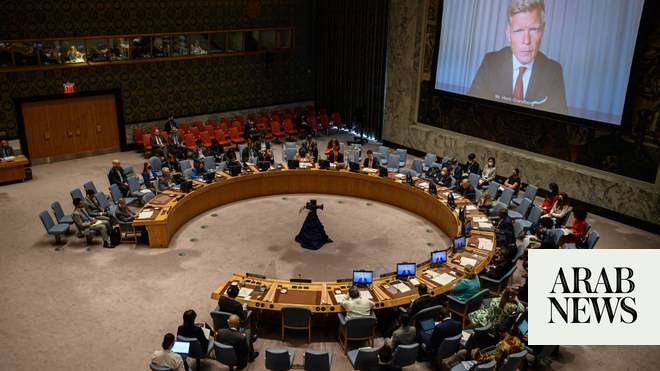
All parties in Yemen must abide by Gulf Cooperation Initiative, said head of Omani UN delegation Mohammed Al-Hassan as he reaffirmed support for work of UN and US envoys
He also reiterated his country’s commitment to a two-state solution to the Palestinian crisis, describing it as ‘an urgent need and strategic necessity’
NEW YORK CITY: The head of the Omani delegation to the UN, Mohammed Al-Hassan, told the 77th session of the UN General Assembly on Monday that the sultanate “continues to spare no effort, through constructive cooperation with all parties, to achieve peace in brotherly Yemen.”
He appealed “to all Yemeni parties to come to terms with the painful past and focus on formulating a promising and a better future for the country that would preserve their unity, security and stability.”
Al-Hassan called on those involved in the conflict to abide by the Gulf Cooperation Council Initiative and all relevant UN resolutions. He added that the sultanate will continue to support the UN and US envoys to the country and appreciates “their endeavors to achieve lasting peace in Yemen through dialogue.”
He called on all Yemeni parties to formulate an approach to peace and the political process in the country that will “safeguard the sovereignty, independence, security and stability of Yemen.”
Oman will “continue to provide all possible facilities and humanitarian assistance to the various Yemeni regions and governorates without exception,” Al-Hassan said, to help end the “suffering of the Yemeni people.”
Shifting his focus to the Palestinian issue, the envoy reaffirmed his country’s commitment to a “two-state solution,” which he described as an “urgent need and a strategic necessity to achieve lasting peace, mutual trust and positive cooperation among all parties in the region.”
Al-Hassan said Oman is also taking an interest in developments in Libya, Syria and Sudan, and is hoping for security and stability in “these brotherly countries.”
Looking further afield, he said that “dialogue and negotiation” efforts must be redoubled as part of moves to resolve the Russian-Ukrainian crisis.
Turning to climate issues, Al-Hassan wished Egypt success when it hosts COP27, the UN Climate Change Conference, in November.
“Climate change is one of the most prominent issues of our time,” he added. “We are now facing a decisive moment. The world is in a real and difficult situation, a challenge that has wide-ranging effects, be it rising temperatures or catastrophic floods, which are all threatening the food security of many countries.”
Al-Hassan warned that these problems will become more costly to deal with unless the international community unites to address climate change. He said that Oman is launching several initiatives designed to mitigate the effects of climate change and reduce carbon emissions by “7 percent by 2030, in accordance with the UN climate agreement.”
He added: “We are moving toward achieving a neutrality of greenhouse gas emissions.”
Al-Hassan highlighted Oman’s green-energy sector and set out the sultanate’s green hydrogen aspirations. Referring to the National Alliance for Hydrogen, he noted that the country’s climate is favorable for the development of green hydrogen technology, with the efforts enhanced by the sultanate’s strategic geographical location.
Oman is currently developing the world’s largest green hydrogen plant, which is scheduled to commence operations in 2028 in Al-Wusta governorate.












